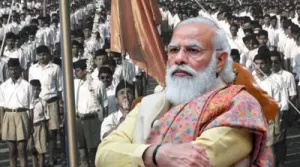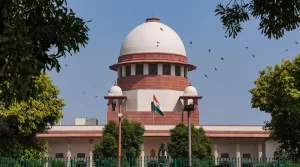Jagmohan Singh and Vikas Gupta
AIFRTE is profoundly concerned by the way in which the Government of India (GOI) is exploiting the disruption of the educational calendar at school and university level due to both the Corona virus pandemic and the subsequent unplanned and hastily imposed `lockdown’ across the nation. Under guise of the pressure to “complete syllabi” and hold examinations, it is pushing for online solutions knowing full well that neither teachers, students nor the administration are at all prepared or equipped for implementing such solutions even for the tiny section of elite students who could access them at all levels.
E-learning is no substitute for classroom interaction. It is at best ONE possible solution – easy for the administration no doubt – for keeping a section of students engaged for a short period of time during the crisis generated by the lock-down. But even in these conditions, it is certainly not the best option for a country like India with a diverse student population, the majority of whom are already disempowered to a great extent by discrimination on the basis of caste, income, gender, religion, linguistic, tribal, regional and disability criteria.
Why is the GOI not encouraging the creative pursuit of more appropriate solutions like internal assessments, and assignments and projects which can be designed during the lockdown period and engaged in by students and teachers collectively once schools/universities re-open even in a phased manner? This would certainly provide all students with more equal opportunities to both cover their subject matter and reduce the individual level of anxiety and stress particularly among the majority of students living under diverse home conditions that are frequently unsuitable for self-study and who invariably lack sufficient access to or experience with computers or smart phones.
The teaching community in India is a complex and composite community which absorbs the real life experiences drawn from the daily activities of teaching and learning in the lives of students, teachers and the communities that surround them. Government must learn to listen to them instead of dictating to them for their voices are the real strength of any planning in education. Their insights and views must be given top priority to tackle the present crisis. Many of them come up with excellent, innovative ways to reach out to the students offline and deliver education to the deprived and the marginalized in more effective ways in order to evolve alternatives for coping with the pandemic in a more practical ways. Moreover, this will be of great help in long term planning for substantive education for our own country, instead of merely relying on borrowed ideas.
GOI is using the Covid-19 crisis to push ahead with its policy of promoting `e-learning’ as an alternative to the strenuous but necessary task of redesigning, strengthening and expanding the present crisis-ridden formal education system from pre-school up to post-graduation and research. The latter demands well-directed and adequate public investment, sound policy-making and democratic participation of students, teachers, administrators and communities.
The states must be allowed to exercise their constitutional rights in determining the education system so that it begins to reflect the diversities that constitute Indian life and experience. It is well worth recalling how disastrous were the results of attempting to reform our school system in `mission mode’ from the 1990’s onwards through programmes like DPEP and SSA, which were also imposed bureaucratically across all states without taking into consideration the distinct ground realities of this vast country. It succeeded in breaking the backbone of the government school system across the country.
E-learning as an alternative shifts the entire burden of education on the individual. It is part of the project for commercialization of education and drastic cutting of government funds for education. The government is now free to collaborate with the corporate sector, winning kudos from them on the one hand for not investing public funds in a national system of education, and on the other for creating a profitable edu-market for corporate producers of digital technology and gadgets. The homogenization of learning, and indeed of knowledge itself, is a global feature of the commercialization of education. This increases profit-taking for investors, but cognitive interest is blunted. A tedious conformism in thinking diminishes creativity and discourages change.
The policy choice adopted by GOI is clear from the most recent April 2020 document of the UGC which states that the Covid-19 induced imposition of digital learning and evaluation is part of the design to ensure that 25% of the academic workload will be handled online from now onwards. On 1st May, the Prime Minister deliberating on reforms required in the education sector, including the National Education Policy (NEP), laid special emphasis on the use of technology and enhancing learning and adapting by the use of technology such as online classes, education portal and class-wise broadcast on dedicated education channels.
The UGC document recognizes that both facilities and training for use of digital technologies even among university faculties and students are largely absent but it finds a silver lining in the Covid-19 lock-down! “The Committee is of the view that the faculty has devoted and is devoting a substantial amount of time which they usually do to answer questions during lectures, group work, discussions, etc. They have achieved the desired objectives by using one or more of the tools such as WhatsApp groups, emails and social media platforms. Actually providing feedback on work submitted electronically by students also counts as a form of substantive interaction. Therefore, such interaction, during this tough time of Corona pandemic, counts for active attendance.”
It is amazing that the country’s premier educational Commission should be promoting a programme of e-learning drawing inspiration from the experience of private social media platforms instead of seriously taking up the task of developing e-learning as a meaningful supplementary to a formal national system of education from pre-nursery right upto the research level.
Distance teaching-learning and evaluation in virtual modes are being campaigned for by governmental as well as private institutions at school, college, and university level. All regulatory authorities like the provincial Directorates/Departments of School Education and the UGC etc., have become a means to thrust this corporate driven agenda onto an unwilling, unprepared and misinformed community of students and teachers. Let us be clear that what is now claimed to be `universalized’ is not `education’ but only an empty promise of uninterrupted access to the brave new world of the Internet.
Classroom interaction creates a public space in which understanding can grow through collective participation of diverse individuals and groups. In fact, the education system has already been pushed into its present crisis-ridden state because instead of strengthening and expanding the education system to universalize quality learning for all India’s children, the policy of commercializing and privatizing education has led to the setting up of discriminatory streams of schools, colleges and universities where costs and fee-hikes create institutions that are sites of exclusion and producers of homogeneity. The unwarranted promotion of mass online programmes will only spread this virus.
A new pedagogical and political culture of silent acceptance and obedience to authority is intended to be advocated and put into operation by the further dilution of the content of education and the dismantling of the structure of an already weakened educational system. Giving primacy to technology in this way will of course lead to a form of communication of information to `individuals’ and `groups’ that are brought together by `invitation’. However, it will as a result discredit questioning and criticality and the creativity of collective learning for social transformation.
(Prof. Jagmohan Singh is Chairperson, AIFRTE and Dr. Vikas Gupta is Organizing Secretary, AIFRTE. AIFRTE has set up a committee on this issue. Pending its full report, this is an interim report on behalf of AIFRTE.)




